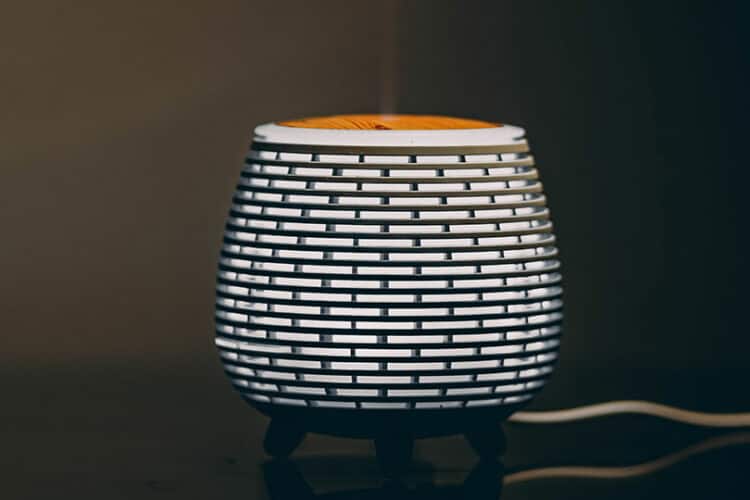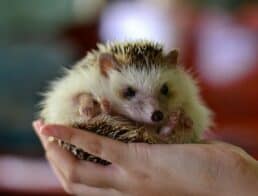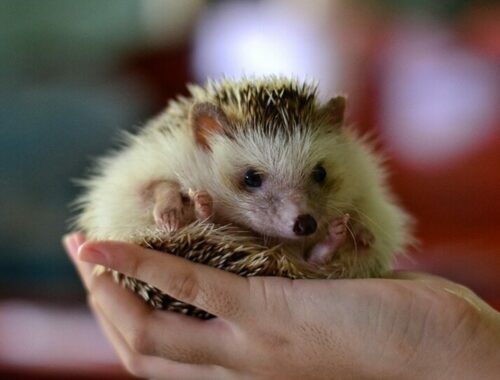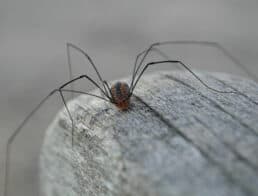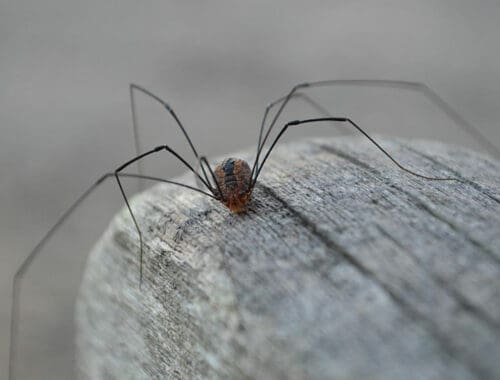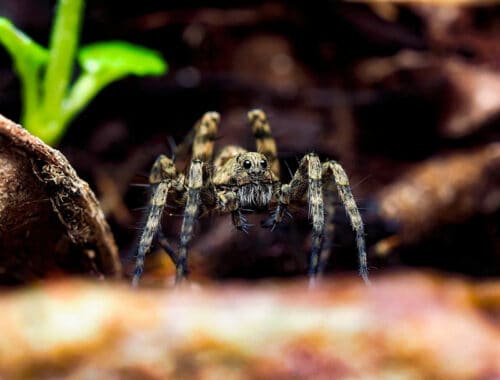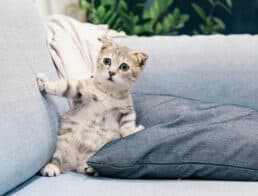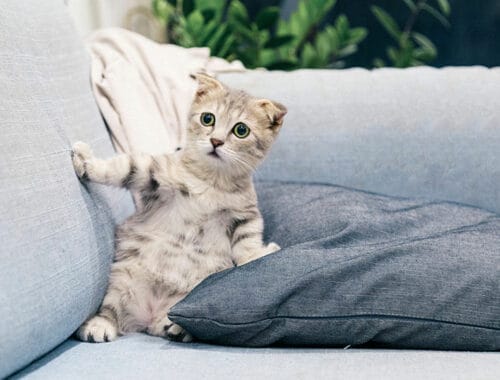Dry regions, cold weather, and heated homes can easily cause our skin to become a bit dry and irritable. Well, you may not be surprised to find that this can also happen to your cat. Cats can also experience itchy skin and stuffy noses due to dry conditions.
And being that they’re susceptible to respiratory problems due to their short and narrow nasal passages, they may experience more severe symptoms than humans when exposed to these conditions. But is it okay to use a humidifier in your home if you have a cat? Are they safe for them? Continue reading to find out.
Are Humidifiers Safe for Cats?
Yes. Humidifiers are known to be beneficial for both cats and dogs. Not only can they help to alleviate their itchy and dry winter skin, but it can help them breathe more easily during the colder months of the year when indoor temperatures may be a bit warmer and drier.
Humidifiers can also be helpful by improving asthma attacks and related symptoms in cats. By keeping your home’s air moist with a humidifier, you can help to make them less frequent and reduce their severity.
In many cases, a cat that’s experiencing trouble breathing will display physical symptoms including frequent coughing, open mouth breathing, frequent colds, or labored breathing. Humidifiers can help keep their nasal passages moistened.
And there are a number of different humidifiers that you can purchase, ranging in price and type. But a traditional one or two-liter humidifier will usually do, depending on the size of your home.
Considerations For Adding Humidifiers to Homes with Cats
Humidifier Location
Humidifiers come in different sizes and small ones can easily be knocked over by your cat, especially if it’s set on a ledge or table. And the last thing you want your cat to do is hurt itself by tipping over the humidifier. So be sure to place the humidifier in a location that’s safe and difficult for the cat to access.
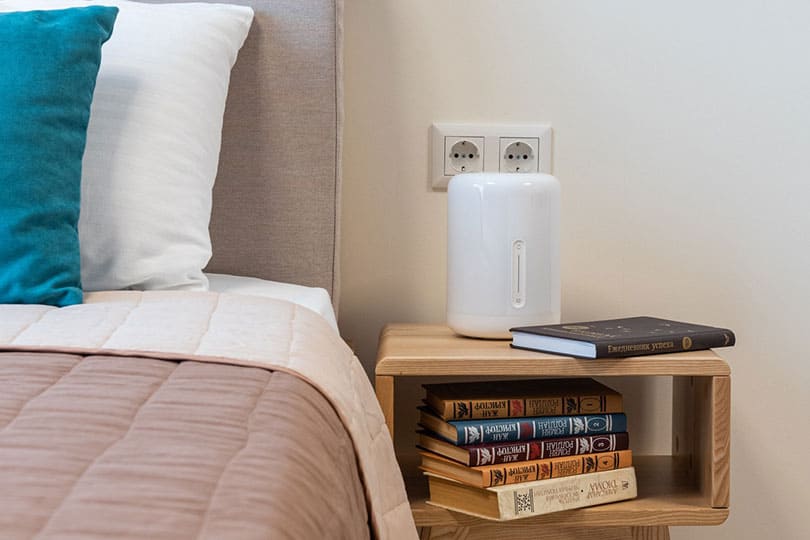
Keep It Clean
Another thing to note is the maintenance required for the humidifier. Keep in mind that humidifiers will need to be maintained on a regular basis, especially if you’re using them every day for several hours at a time.
Due to the moisture content, the humidifier can easily become a breeding ground for mold, bacteria, and other allergens that can be harmful to both you and your kitty. So be sure to read the humidifier’s label for instructions on how to best disinfect. Be sure to clean the humidifier as well as the filter.
Some humidifiers will come with disposable filters, While others can simply be cleaned using a little diluted vinegar or dish soap. However, it’s best to always follow the manufacturer’s guidelines.
Always Use Distilled Water
It’s best to use water that is either distilled or boiled than tap water or spring water. The reason is that the minerals in the water can produce what’s known as “white dust” to be admitted into the air (and in many cases, you’ll see it on the filter), which can cause irritation in your cat.
Unplug The Filter When It’s Not in Use
Cats can behave like small children. They’re curious and will try to grab almost anything. This includes electrical plugs. So be sure to either activate the auto-shutoff feature on your humidifier or turn it off and unplug it (tucking in the cord) whenever you’re not using it. This will prevent potential injuries as well as fires.
Don’t Add Oils or Additives to The Water
It’s never a good idea to attempt to use your humidifier as an oil diffuser. And the humidifier’s instructions will usually list not to do this specifically. Essential oils can be especially toxic to your pet, and they can pose a health risk as well.
Not only that, but it can become clogged by the oil, which’ll reduce its effectiveness and potentially damage it. Your humidifier will operate at its best if you refrain from adding any extra ingredients or additives.
Don’t Over-Humidify the Space
If you have a large humidifier or a small space, it can be easy to overdo it a bit. The adequate indoor humidity level for most humans (and thusly, cats) is anywhere from 30% to 55%. Not only is this the most comfortable range for humidity, but it’s also the safest and will prevent your home from becoming a moldy, mildew-ridden place.
Also, if you notice that your cat’s fur seems to be matted or it begins to develop colds more often, you may want to turn the humidity level down some. You can also purchase a hygrometer to monitor the humidity levels to keep them within range. These are about $10 and can be found on Amazon or any music store.
Wrapping Things Up
So, there you have it. Yes, cats can definitely benefit from humidifiers. However, it is important to use them with caution and to pay attention to your cat’s comfort level and health once you place them in your home.
Featured Image Credit: Unsplash


